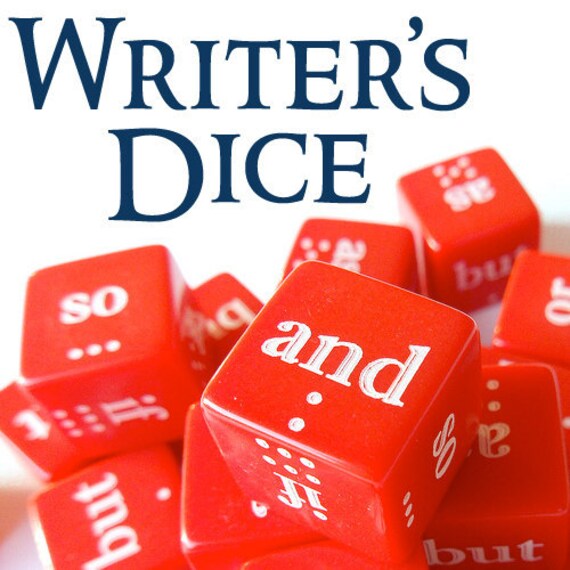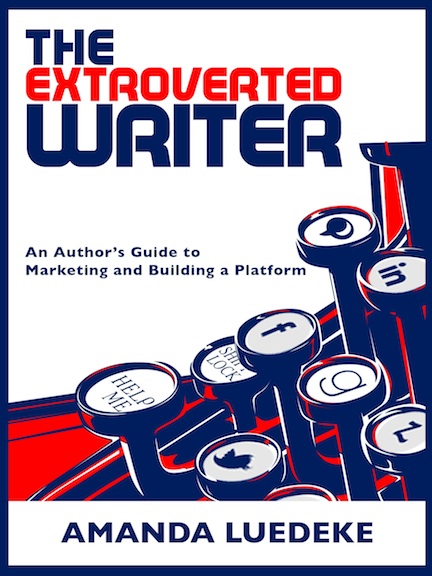178 Search Results for thursdays with amanda
-
Continue Reading "Thursday with Amanda: Growing a Platform Is Like Dominos"
Thursday with Amanda: Growing a Platform Is Like Dominos
NOTE: Amanda Luedeke is a literary agent with MacGregor Literary. You can follow her on Twitter @amandaluedeke or join her Facebook group to stay current with her wheelings and dealings as an agent.
So now you know what to shoot for in terms of numbers (if you missed it, last Thursday we talked about how big an author platform should be). But as many of you pointed out, those numbers seem impossible. The time and effort required to grow such a following had some of you envisioning yourself with an impressive platform sometime in the year 2030. While others flat out admitted that they didn’t have a single sales bone in their body. You’re artists, after all. And artists don’t always make the most sociable, friendly, outgoing, spin doctoring bunch.
So what’s the secret? How can these numbers be achieved?
Let me explain it like this…most authors, when embarking on a quest to tackle the platform demon, treat it like spaghetti. They throw everything against the wall to see what sticks. They start a Facebook group, a Twitter account, a blog, a website, a Goodreads account, a newsletter and on and on and on until they feel they have all of the possible platform-building areas covered.
And then they’re surprised when nothing happens. When their Facebook group hovers around 50 followers—most of which are personal or family friends. When their Twitter account has more spam followers than real followers and their website stats don’t climb above 30 visits a day. They’re surprised by this, because they’re doing everything they’re supposed to do and nothing is working. And more than anything, they’re exhausted. They’ve spread themselves so thin, they can barely keep track of what was said where. At this point, most give up. They tried their best, and it didn’t work.
But platform is nothing like spaghetti. It’s more like a game of dominos (as in the game in
-
Continue Reading "Here’s Where to Get Your Industry Fix — The Gatecrashers Podcast"
Here’s Where to Get Your Industry Fix — The Gatecrashers Podcast
 For quite awhile on this blog I had a weekly column entitled Thursdays with Amanda. I’d talk primarily about marketing, since that was my background, and try to help authors navigate what can oftentimes seem like a mystery. It led to a book and countless conversations with authors who wanted to better understand how to be smart about book marketing.
For quite awhile on this blog I had a weekly column entitled Thursdays with Amanda. I’d talk primarily about marketing, since that was my background, and try to help authors navigate what can oftentimes seem like a mystery. It led to a book and countless conversations with authors who wanted to better understand how to be smart about book marketing.Then, some years ago we decided to take a break from blogging. It was taking up a lot of time and Chip and I were both busy pursuing career growth.
But last fall, I got the itch to once again share what I know with authors.
And so The Gatecrashers Podcast was born.
This isn’t your typical podcast of author interviews or happy talk. This is an industry-focused weekly show in which we “storm the gates of publishing and dare to talk about the realities of the industry.”
Some of the topics we’ve covered include:
- How do publishers determine marketing budgets?
- What agents aren’t telling you …
- The biggest mistakes you’re likely to make …
- How will COVID-19 affect book publishing?
- And more.
My cohost, Charis Crowe, brings insight from the self-publishing world while I offer ten years of experience in the industry as a book agent and now V-P of MacGregor & Luedeke.
I hope you’ll give us a listen. And if you’re on Facebook, find me at Facebook.com/AgentAmandaLuedeke. There, I post my deals, share info, and interact with my followers.
-
Continue Reading "Ask the Agent: How do you feel about free fiction? (and other topics)"
Ask the Agent: How do you feel about free fiction? (and other topics)
A writing friend sent this: “I need your help. A publicist sent me an email and asked me to review a client’s book. I agreed. Unfortunately, the book is horrible. The publicist has emailed to inquire as to when I would be posting my book review. As a writer, I hate to totally slam a book. What do you suggest?”
This has happened to lot of us. My advice: Send a nice note to the publicist, saying, “You know, I read this, and it didn’t really appeal to me. I don’t want to say anything negative, so could I beg off, and you could ask me to review another book sometime?”
And this came in to the website: “I am writing a book which will be illustrated. What is the industry standard for sharing royalties between authors and illustrators?”
A book that has a few illustrations spread throughout usually doesn’t share royalties with the artist – the illustrations are usually licensed and paid for with a one-time payment. A book that has illustrations throughout (for example, a children’s picture book) will either have the artwork purchased outright, OR they will split the royalties in some way. I’ve seen all sorts of splits, by the way, but the standard is 50/50. Be aware, most children’s publishers don’t purchase the art you’re recommending. They’ll contract the text with you, then find their own illustrator whom they know and trust.
Someone asked this on the blog: “How do you feel about free fiction?”
I think it can work as a marketing strategy. Authors can give away a book to a particular audience, and hope to build readers. (YA author Jenny B Jones talked about that strategy on this blog a couple months ago.) But I also think its effectiveness is diminishing due to the vast amounts of free crap available online. Let’s face it – when you’re
-
Continue Reading "Voice Lessons: Part 5, The Need for Voice"
Voice Lessons: Part 5, The Need for Voice
 Today is the last day of my series on author voice. I’ve spent most of my time over the past few weeks talking about what voice IS– how to define it, how to recognize it, how to develop it– but today, I want to talk about probably the most important factor in developing a strong personal voice as a writer, and that is understanding the need for great voice. I started the series by talking about some of the frustration associated with chasing strong voice, and the nebulous, elusive way we often talk about “great author voice,” and the reality is that the ability to identify or harness a strong writing voice doesn’t come naturally to a lot of writers. Like whatever subject just never made sense to you in school (just the word “chemistry” still prompts a panic response), voice for a lot of people is a frustrating area. You might think you see a glimmer of light when reading a blog post or a how-to article or listening to a lecture on it, but five minutes into trying to critique/improve your own voice in a piece of writing and you’re frustrated, depressed, and ready to forget it. It’s true that voice isn’t as easy to work on as mechanics, or characters, or dialogue, both because it’s less concrete and because there are fewer resources available, but understanding why voice is so important can help keep you motivated to continue working on yours, even if it feels like an uphill battle.
Today is the last day of my series on author voice. I’ve spent most of my time over the past few weeks talking about what voice IS– how to define it, how to recognize it, how to develop it– but today, I want to talk about probably the most important factor in developing a strong personal voice as a writer, and that is understanding the need for great voice. I started the series by talking about some of the frustration associated with chasing strong voice, and the nebulous, elusive way we often talk about “great author voice,” and the reality is that the ability to identify or harness a strong writing voice doesn’t come naturally to a lot of writers. Like whatever subject just never made sense to you in school (just the word “chemistry” still prompts a panic response), voice for a lot of people is a frustrating area. You might think you see a glimmer of light when reading a blog post or a how-to article or listening to a lecture on it, but five minutes into trying to critique/improve your own voice in a piece of writing and you’re frustrated, depressed, and ready to forget it. It’s true that voice isn’t as easy to work on as mechanics, or characters, or dialogue, both because it’s less concrete and because there are fewer resources available, but understanding why voice is so important can help keep you motivated to continue working on yours, even if it feels like an uphill battle.Think about some of your favorite books. If you’re like me, they probably come from one or two of the same genres– maybe your favorite books tend to be romances, or historical fiction, or mysteries. Even if your top five books come from five different genres, each one (most likely) can be categorized with THOUSANDS of other titles in the same genre or sub-genre. Take an easy
-
Continue Reading "What blogs do you read?"
What blogs do you read?
I frequently get the question, “What blogs do you read?,” and I always stumble around a bit. You see, I’m a longtime literary agent (16 years now), and I represent a bunch of writers who have blogs. I have bestselling authors (Vincent Zandri, Rachel Hauck, etc) who regularly blog, some super-gifted writing instructors (J. Mark Bertrand, Lisa Samson, Les Edgerton) who occasionally blog, and some other writers (Lisa McKay, Sheila Gregoire, Nicole Unice, etc) who often have interesting insights to share. How do I pick?
But I figured it’s fair to ask an agent, so long as he or she didn’t focus on authors they represent. So Here are ten blogs I regularly stop by to visit.
1. Seth Godin (http://sethgodin.typepad.com/seths_blog/). He’s an interesting guy, with lots of practical thoughts on marketing and publishing.
2. Janet Reid (http://jetreidliterary.blogspot.com). Now that Rachelle Gardner isn’t blogging much anymore, and PubRants is gone, Janet has become my favorite OTHER literary agent to read. I love reading sites where I learn things.
3. Nathan Bransford (http://blog.nathanbransford.com). A former literary agent, now focusing on his own writing, Nathan only blogs about once a week, but it’s always interesting.
4. Writer UnBoxed (http://writerunboxed.com). One of the authors I represent introduced me to this site, run by a couple of novelists. Insightful stuff on the business as well as the craft of fiction.
4. A Newbie’s Guide to Publishing (http://jakonrath.blogspot.com). Some people will find it hard to believe I stuck Konrath on here, and I’ll warn you that his ego may not all fit on your hard drive, but he’s interesting and offers good thoughts on the industry. Don’t take him as gospel (Joe is the presiding bishop at the Church of Amazon), but he’s often got insightful stuff to say about the industry, and he shares it straight.
5. Reading Rambo (http://www.reading-rambo.com). I’m a huge Charles Dickens fan, so Andrea Burton’s look at literature (and the
-
Continue Reading "What about a mega-giveaway? (a guest blog)"
What about a mega-giveaway? (a guest blog)
BY GUEST BLOGGER RAJDEEP PAULUS, author of Swimming Through Clouds
Life is about give and take. My mom taught me this at a very early age. We learn this on the playground: “Give me a push on the swings. Now your turn.”
But as we grow older, we get confused. We don’t always know what we want. And we’re wary of those who offer to give us something in return for anything. How much will they expect? Will the return be worth the effort? We can all think of a hundred better things to do with our time. Time is limited, after all.
So as a newbie author navigating the torrential waves of marketing, I have decided that I’ve tried sailing, kayaking, and snorkeling with the likes of blogs tours, twitter parties, and spray-painting Swimming Through Clouds across NYC brick walls in the best view of passing subway riders. I suppose the latter is something I only dream about but some day…
Anyway, the most success I’ve personally had at spreading book news has been with the A-MAZING dessert party put on by the fabulous Amanda Luedeke (of “Thursdays with Amanda” fame, although lately…) and her partners in crime, Chip and Sandra. You can read about all the fun here at Playlist Fiction or here on Chip’s Blog!
Although I like to say life is one big par-tay, the truth is, most of us can’t afford to party Monday through Friday and on the weekends. That’s just not reality.
So back in my little boat, swimming through ideas of how to get the word out about my book and all the fab titles over at Playlist Fiction, I ventured out and researched what other succeeding Indie YA authors were doing. Stumbled upon a new writer who is tearing up the charts with her New Adult book, and one major thing she’s doing differently that I hadn’t seen before
-
Continue Reading "The Extroverted Writer is in PRINT!"
The Extroverted Writer is in PRINT!
We’re happy to announce that The Extroverted Writer is now available in print from Amazon.com!
So for those of you who enjoy making notes in margins and dog-earing pages, check it out.
NOW IN PRINT
Take control of your writing career and develop an online following that sells books and propels you forward!Whether you’re a published author or new to the industry, THE EXTROVERTED WRITER gives you the tools you need to gain a readership through:
• Facebook
• Twitter
• Blogging
• Websites
• And MORE!Literary agent Amanda Luedeke uses her background in corporate marketing to show readers that even if you’re an introvert you can have a great online author following by tapping into the reader-packed world of social media. From ideas to tips to absolute musts, THE EXTROVERTED WRITER builds on Amanda’s successful “Thursdays with Amanda” blog posts on ChipMacGregor.com. This easy-to-read guide breaks down the most popular social media sites and online options to give YOU the tools you need to be effective when engaging with your readers.
Whether you’re new to social media or a longtime pro…whether you have dozens of books under your belt or are still waiting for your first deal, this book is for you.
I started reading Amanda’s posts on chipmagregor.com about the time my novel was launching. Amanda’s understanding of branding and her insight as an agent were extremely helpful to me as I thought about an overall platform strategy. I had no idea what to do about Facebook, and her thoughts helped me refine what I was doing and better connect with my fiction readers.
~ Charity Hawkins, author of The Homeschool Experiment: a novel.My twitter following tripled with Amanda’s training and after putting her Google search rules into practice, my blog posts are drawing increased traffic and new shares. Reading The Extroverted Writer is like getting down-to-earth advice from your best friend.
-
Continue Reading "10 Gift Ideas for Writers"
10 Gift Ideas for Writers
 Amanda Luedeke is a literary agent with MacGregor Literary. Every Thursday, she posts about growing your author platform. You can follow her on Twitter @amandaluedeke or join her Facebook group to stay current with her wheelings and dealings as an agent. Her author marketing book, The Extroverted Writer, is available from Amazon and Barnes & Noble.
Amanda Luedeke is a literary agent with MacGregor Literary. Every Thursday, she posts about growing your author platform. You can follow her on Twitter @amandaluedeke or join her Facebook group to stay current with her wheelings and dealings as an agent. Her author marketing book, The Extroverted Writer, is available from Amazon and Barnes & Noble.Ever wondered what to get your critique partners or writer friends/spouses for the holidays? Or maybe you’re at a loss for what to ask for this year? Never fear. I’ve got a drool-worthy list right here. With gifts sure to please you/the daydreaming wordsmiths in your life…regardless of your price range.
 1. Never underestimate a writer’s need for a librarian. When the Internet fails to provide much-needed search results and the writer’s list of historians and experts proves to be unhelpful, the first place many go is straight to the town library. And they wouldn’t have it any other way. It gets lonely, staring at a computer for hours on end. The library gets writers out of the house. We agents believe such behavior should be encouraged as often as possible. That’s why this mug is the perfect reminder that just because you don’t know what the Sami people wore in 1710, doesn’t mean all is lost. Keep calm. Ask a librarian.
1. Never underestimate a writer’s need for a librarian. When the Internet fails to provide much-needed search results and the writer’s list of historians and experts proves to be unhelpful, the first place many go is straight to the town library. And they wouldn’t have it any other way. It gets lonely, staring at a computer for hours on end. The library gets writers out of the house. We agents believe such behavior should be encouraged as often as possible. That’s why this mug is the perfect reminder that just because you don’t know what the Sami people wore in 1710, doesn’t mean all is lost. Keep calm. Ask a librarian.
2. If you’ve ever been around your writer friend(s) when they’re in the midst of writer’s block, you know it’s a painful sight. Bags under the eyes. Unkempt hair. Dirty clothing. While their children have gone unfed, their house uncleaned…okay, so in all honesty, the very same thing happens when a writer is under deadline. So all the more reason to give your writer friends these Writer Dice. They not only help with plot formation, but can get stories out of sticky situations. Meaning less time spent slaving away at the keyboard, writing and




